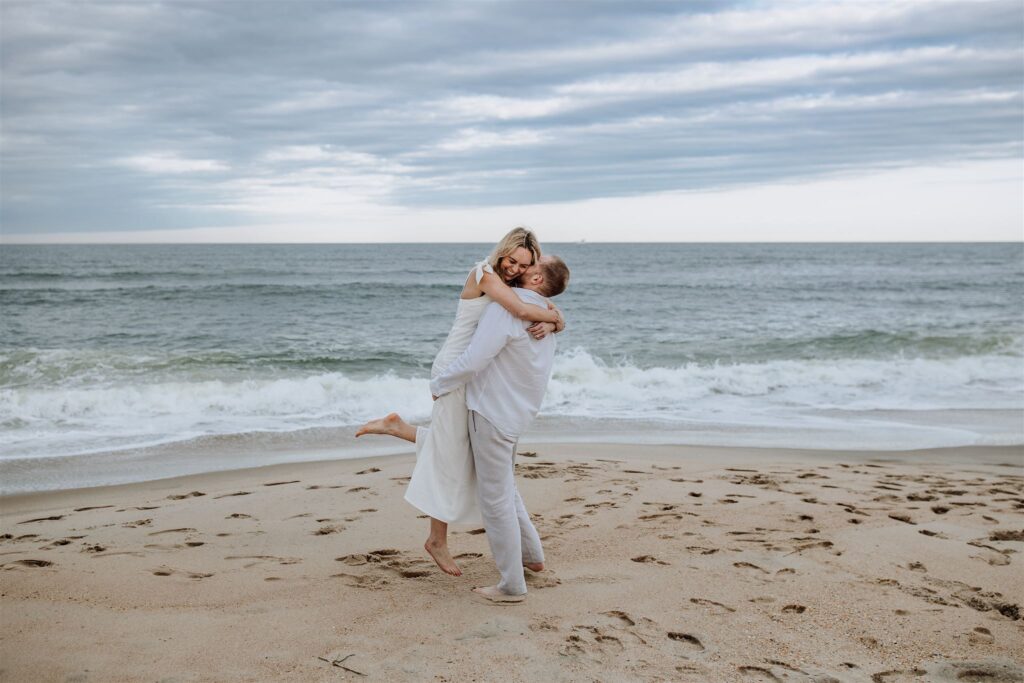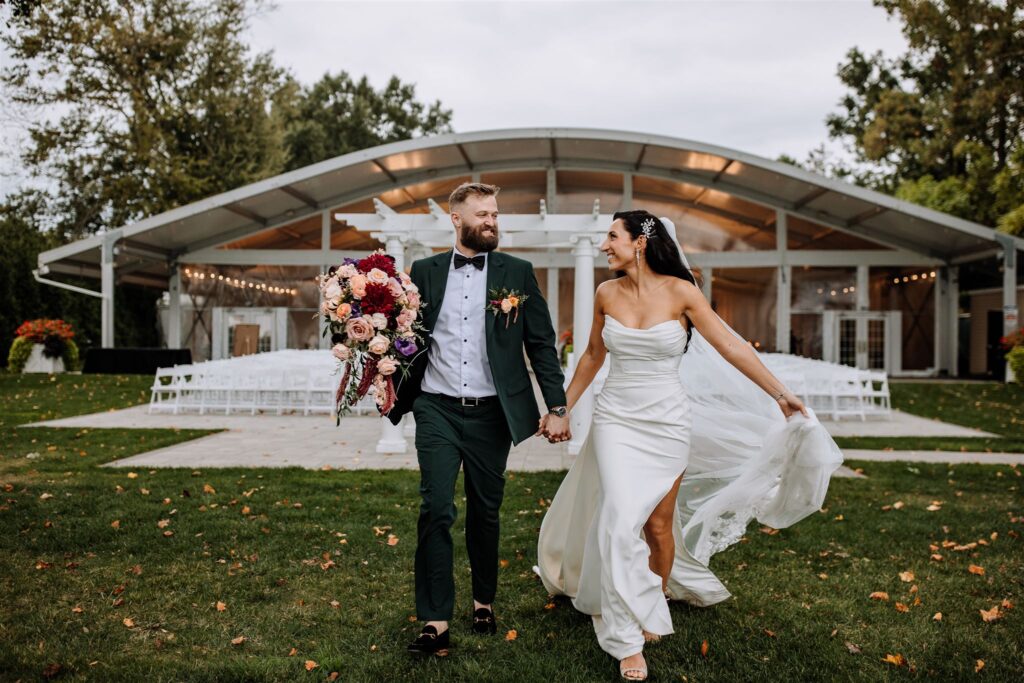We're a team of wedding, elopement and portrait photographers who put community over competition. We provide tips and resources for Photographers looking to up-level their businesses.
We're here to help When you join The Photography Business Academy
How to Calculate Your Cost of Doing Business for Photographers (FULL GUIDE)
Many great photographers create businesses that ultimately fail because they don’t get this one calculation right from the start. Figuring out your cost of doing business for photographers is so essential, and we want to help you on a path to a successful, prosperous business that can support your desired lifestyle and more.
The cost of doing business for photographers (or CODB for short) is the amount of money you need to make to cover your personal and business expenses, while ensuring you walk away with a reasonable salary.
The CODB calculation is so important, because there is no one-size-fits-all amount of money that everyone needs to make to be successful with their businesses.
In this post, we’re going to cover everything that you should be factoring into your cost of doing business as a photographer, some tips for making this calculation even easier, and examples of CODB in action. All of this will lead into a conversation about taking your cost of doing business as a photographer, and translating it into effective pricing that ensures you can get booked by clients and earn the money you need to make to THRIVE in your business.
If you need more help with this (or anything in your business), be sure to check out our Financial Management Course for Photographers, part of the full Photography Business Academy course curriculum.

Getting Started – 4 Things You Need to Know Before You Calculate Your CODB
Identify Your Personal Expenses
Knowing how much you spend in your day-to-day, personal life, is an essential starting point for anyone aspiring to be a photography business owner.
Afterall, your goal is going to be to make at least enough money to cover your regular expenses – right?
If you don’t have a budget already in place, let’s get started by highlighting some key expenses you will want to be factoring in. Common personal expenses include:
Car Loan Payment
Typically, your car payment will be a consistent amount of money every month.
Car Insurance
This is the cost to insure your car month-to-month.
Cost of Fuel for Car
As a photographer, you will likely be driving more than the average person, so it’s easy for fuel costs to add up throughout the year. Give a best estimate for how much you expect to spend per month and year on gas.
Mortgage/Rent Payment
Mortgage or rent payments will make up a large part of your personal expenses. Fortunately, it’s a recurring number that typically stays the same every month, so it’s easy to add into your calculation.
Homeowners/Renters Insurance
This is the cost to insure your home or rental month-to-month.
Home Utility Costs
These will range significantly for each person depending on factors in their home. You will want to include all costs such as heating, water, electric, internet, cable TV, and any other utilities you use.
Since these costs can fluctuate month-to-month, if you have access to statements from the past year or 2, it can be useful to check those out to find your average spending per month. If you don’t have hard data like this available, you should make reasonable estimates that air on the side of caution – estimate higher than you likely will need.
Cell Phone Bill
Your phone bill will be another recurring expense that stays similar month-to-month.
If you are battling a high phone bill, we can recommend Mint Mobile as a great solution. We started using Mint last year and have trimmed this cost dramatically (from about $100/month to $20/month). Their service operates on T-Mobile cell towers, and we’ve had better service in the areas we live and work in than with former carriers like Verizon and AT&T. Your mileage may vary, but it’s been a great thing for us.
Cost of Groceries
Grocery costs can vary from week-to-week, but creating a reasonable estimate is a good way to go. If you have access to old credit card or bank statements, or receipts from past grocery trips, you may be able to get a more accurate picture of your spending habits.
Since groceries are a variable expense, it’s best to estimate on the high end when possible.
For example, our grocery bills every month ranges between $600 to $800 dollars – but for the purpose of calculating our CODB as photographers, we estimate it will cost $800 every month.
Student Loans and Other Debt Payments
If you have debt like student loans, credit cards, etc. – you will want to factor in your payments into this calculation. You can either use your minimum payments, or estimate higher if you are looking to pay things off quicker.
Entertainment and Miscellaneous Spending
This is one of the most challenging categories for people to budget correctly, since virtually all of these expenses are variable month-to-month (with the exception of things like music and TV subscription services like Spotify, Hulu, Netflix).
Our best advice if this is your first-time budgeting and actually thinking about how much money you spend is to actually go and look at your past spending habits. Look at your bank statements and credit card bills and add up everything you purchased that will fall into this category. If you have a year of data, that can help you make a really educated decision on how much to allocate here.
Without this data, you are left to estimate. A good estimate will require you to take a hard look at yourself and your lifestyle and should lean higher than you expect. Think about everything you spend money on for fun or because it’s unexpected but required.
Some expenses we had recently that would fit into this category include needing to replace our air conditioning unit in our home and going out to eat with friends.
Understanding Your Photography Business Expenses
As far as photography business expenses go, there are many that you will have to factor into your calculation.
If you are a new photographer needing to get your start up professional camera gear, your costs will be much higher than a photographer who is more established, only needing to cover costs for subscription services like a CRM or online gallery, the occasional gear purchase, and investments into things like updating your brand, website, and outsourcing other services.
Camera Equipment
Photographers need cameras – bodies, lenses, flashes, batteries and everything in between. Typically, when starting a new photography business, you can expect to spend $10,000 – $20,000 in one-time purchases towards professional quality gear. Once you get over this hump, your costs for gear should reduce significantly every year.
Workflow Management Tools
To run your business effectively, you can make use of a number of tools to make it easier for you and your clients. Our favorite tools are customer relationship managers for photographers, which allow you to send contracts, invoices, schedule meetings, manage projects, and much more.
Learn more about some great CRMs for photographers in this blog post.
Client Gallery Delivery
When you deliver photos to clients, it’s best to use a specialized gallery delivery platform. These will not only be a great place to host your finished, edited images – but also give you the opportunity to make more money on additional print & album sales.
Some good online gallery options include:
- Pixieset
- Pic-Time
- Shootproof
Post Processing Software
For most photography styles, you will need to use post processing software to cull and edit your images efficiently. Examples of these include Adobe Lightroom and Photoshop (two popular photo editing software’s).
Professional Service Fees
When you pay a professional to help you operate your business more efficiently, you’ll want to consider how much this will cost you when you calculate your cost of doing business. Some of these expenses may be a one-time event (like paying a lawyer to set up a contract for you), while you may also choose to retain (pay month-to-month for services) a service provider.
Examples of professional services fees you can encounter as a photographer:
Outsourcing Fees
One of the best parts about running a photography business, as opposed to working for someone else, is that when you don’t enjoy doing something – you can pay someone else to do it for you.
Some of the best things you can outsource in your photography business includes…
- Photo editing
- Photo culling
- Social media posting
- Client communication
- Copywriting & Blog writing
- Website development
For getting help like this in your business, check out our recommendations on our Resources page.
Business Insurance
You will want business insurance to protect your financial welfare in the event of damage or loss of your camera equipment, lawsuits, and other events.
In some circumstances, such as wedding photographers working at wedding venues, you may be required to have business insurance to work at those locations.
You can learn more in our Guide to Business Insurance for Photographers.
Payroll Expenses
If you are a photographer established as an S-Corp, you will end up having to pay yourself through a payroll provider (like ADP). There are costs for this service. Fortunately, if you are in this position, you likely are reaping more tax benefits from your S-Corp status!
Not sure what any of this means? Learn more about Business Structures for Photographers including a break down of Sole Props, LLCs, S-Corps, and more.
Website & Marketing Costs
Besides camera gear and professional service fees, as a photographer you will likely spend the most towards your website and marketing efforts.
While you can create a website yourself at a low cost, it does require some skill to design and organize a website to convert well. If you’re not ready to hire a full website designer, you can find pre-built templates that will do a great job.
As far as marketing goes, you can do well with little to no marketing budget. We have built our thriving photography businesses with no ad spend, just pure focus on search engine optimization and organic social media.
With that said – any purchases you make in this space, whether it’s a website template or designer, or paying for ads, will all be costs you need to consider.
If you want more help with your website, check out our Websites for Photographers Course – where we go in great detail to show you what the perfect site needs and include walkthroughs, templates, copywriting assistance, and more to help you bring it to life.
Health Care
Your health care insurance premiums can be counted as a business expense and deducted from your taxes.
Ongoing Education
If you choose to invest in photography or business education, these will be expenses you should consider in your cost of doing business. Fortunately, they are also expenses that reduce how much you need to pay in taxes – so sometimes it’s beneficial to invest in yourself and ongoing education.
Speaking of education, we’d love it if you checked out our comprehensive online course program – The Photography Business Academy.

Determine Your Monthly and Yearly Spending
Now that we’ve broken down many of the personal and business expenses you should be factoring into your calculations, you will want to lay these out into monthly and yearly spending amounts.
Example of projected spending:
| Services | Monthly Costs | Yearly Costs |
| Website Hosting | $33.33 | $400 |
| Online Gallery Software | $33.33 | $400 |
| Business Insurance | $50 | $600 |
| Bookkeeping Software | $33.33 | $400 |
| Adobe Lightroom & Photoshop | $16.66 | $200 |
| Accountant Fees | $166.66 | $2,000 |
| Marketing Budget | $333.33 | $4,000 |
| Payroll | $83.33 | $1,000 |
| Health Care | $333.33 | $4,000 |
| Misc. Expenses | $333.33 | $4,000 |
| TOTALS | $1,416.66 | $17,000 |
Think About How Much Time You Can Work
One major component of calculating your CODB is taking into consideration how much you will be able to work during a given year.
For example, wedding photographers are much more limited than average because most of their opportunities to work will fall on weekends (Friday to Sunday). In most places around the world, weddings are also only popular during 3 seasons – reducing your opportunities from 12 to 9 months. For many wedding photographer, this provides roughly ~108 days out of the year to secure work.
Fortunately, the average wedding photographers only needs to shoot ~20-30 weddings a year to bring in a solid income. As a result of this limited time (among other things), wedding photographers can typically charge much more for their services.
A portrait photographer will have different options – with more ability to work during the week, for shorter periods of time, and with a larger volume of clients.
How to Calculate Cost of Doing Business for Photographers
In this section, we’re going to highlight you you can calculate your cost of doing business as a photographer. We are going to give you two different ways of doing it – a “full calculation” and our simplified method that has worked for our businesses. We’ve also included examples for wedding and portrait photographers, respectively.
Cost of Doing Business for Photographers – Full Calculation
The fundamental cost of doing business calculation used by any business will go in depth to not just identify how much revenue you need to generate with your business per year, but determine how much money you are making per hour (“billable unit”).
In practice, this level of detail is absolutely valuable for photographers, but can be complex and overwhelming – especially if you are just wanting to get a better glimpse at your financial requirements when running a photography business.
Here, we are going to walk you through the full CODB calculation. In the next section, we will cover our simplified CODB method.
Step 1: Determine Your Gross Salary Requirements
This figure should be how much money you personally want to make. It should be, at least, enough to cover your personal expenses as well as your tax obligations.
Step 2: Determine Your Business Expenses
Add up all expected business expenses.
(At the end of this step, you will have determined your total CODB – how much you need to make per year)
Step 3: Determine Your Billable Hours
You will need to take a hard look at your calendar and determine how many working days you will be willing and able to provide photography services to your clients. From there, you will also need to determine how many hours during those days you are willing and able to perform work.
To find your billable hours, take the number of days you have available in the next year and multiply by the number of hours you’re willing and able to book photography work.
Step 4: Calculate Your CODB Per Billable Hour
Now, you will want to take your total CODB and divide by your total billable units. The result will show you how much you need to make per billable unit (hour, session, wedding, etc.).
Step 5: Determine your billable time per service that you offer
Note: If you offer different types of sessions or photography services, you will need to evaluate each individually – as they all may have different time requirements.
Let’s think about this if you are a wedding photographer offering 3 packages:
5 Hour Wedding
8 Hour Wedding
10 Hour Wedding
Step 6: Determine your cost of doing business per service offering
Finally, in this step you will be able to identify how much you should be charging to manage your expenses and limited time availability as a photographer for your various service offerings.
Cost of Doing Business for Photographers – Simplified Calculation
As photographers, you can also arrive at your cost of doing business easily by doing the following steps:
Step 1: Determine Your Gross Salary Requirements
This figure should be how much money you personally want to make. It should be, at least, enough to cover your personal expenses as well as your tax obligations.
Step 2: Determine Your Business Expenses
Add up all expected business expenses.
(At the end of this step, you will have determined your total CODB – how much you need to make per year)
Step 3: Identify how many sessions/events you want to photograph per year
Even if you have unlimited availability, most photographers will not want to work every day possible.
As a wedding photographer, you may want to just photograph 20 or 30 weddings a year. As a portrait photographer, you may just want to document 50 portrait sessions. You can work with these figures as long as they are realistic to your specific photography niche, industry and market.
Step 4: Divide the number of sessions/events you want to photography by your total CODB
If you determine that your business expenses and personal salary requirements are $60,000 and you want to photograph 30 weddings a year, you’re CODB will be $2,000 per wedding.

Calculating Your CODB for Wedding Photographers – Example
Now, let’s play with some numbers (isn’t math fun!?).
Wedding Photographer #1 – CODB Calculation
This photographer wants to make $40,000 a year as a salary and will spend $10,000 a year on business expenses. She’d like to photograph 25 weddings this year, too. She needs to make at least $50,000 dollars in revenue. Her CODB per wedding covered will be $2,000.
Wedding Photographer #2 – CODB Calculation
This photographer wants to make $80,000 a year as a salary and will spend $17,000 a year on business expenses. He’d like to photograph 35 weddings this year, too. He needs to make at least $97,000 dollars in revenue. His CODB per wedding covered will be $2,771.
Wedding Photographer #3 – CODB Calculation
This is a husband and wife wedding photography team – so we need earnings for a 2 person household.
These photographers want to make $120,000 a year as a salary and will spend $20,000 a year on business expenses. They’d like to photograph 25 weddings this year, too. They need to make at least $140,000 in revenue. Their CODB per wedding covered will be $5,600.
Calculating Your CODB for Portrait Photographers – Example
Now for the portrait photographers!
Portrait Photographer #1 – CODB Calculation
This photographer wants to make $40,000 a year as a salary and will spend $10,000 a year on business expenses. She’d like to photograph 75 portrait sessions this year, too. She needs to make at least $50,000 dollars in revenue. Her CODB per session covered will be $666.
Portrait Photographer #2 – CODB Calculation
This photographer wants to make $80,000 a year as a salary and will spend $17,000 a year on business expenses. He’d like to photograph 50 portrait sessions this year, too. He needs to make at least $97,000 dollars in revenue. His CODB per wedding covered will be $1,940.
How Often Should You Calculate Your Cost of Doing Business as a Photographer?
Many photographers make the mistake of treating their CODB calculation as a once-and-done exercise, when you should regularly plan to revise and update it.
At a bare minimum, you should review your cost of doing business every year.
In our book, we recommend doing it a few times a year to ensure your spending habits are remaining the same and being appropriately budgeted for.
If you have flexibility in your lifestyle and spending, we also recommend calculating multiple costs of doing business. For example, if you’d be comfortable and happy making $40,000, but would ideally like to be making $60,000 – run the numbers for both to see how this translates into your pricing and booking capabilities.
Translating Your Cost of Doing Business into Effective Photography Service Pricing
Your CODB tells you how much you should be charging for your services at minimum. This is how much you need to make to ensure you walk away with a reasonable salary, as well as covering all of your expected expenses as a business owner.
While there are different strategies for building your photography service prices around this number, the simplest solution is to set your base package to at least your cost of doing business.
However you approach your pricing, it’s essential that when you make sales, you are making enough to stay in business.
Ultimately, cost of doing business is just one part of the equation when setting pricing – there are other factors to consider as well!
Final Thoughts
Knowing your photography cost of doing business will set you up for success as a business owner. We hope this article has been insightful and informative to help you determine how much you need to be making and charging your clients in order to thrive with your business.
If you’d like more help figuring this out (and more), check out our Finance Course for Photographers or any other course in The Photography Business Academy. In there, we can help you confidently budget, set better pricing, and sell yourself with ease.

Honesty is a cornerstone of Shoot and Thrive, so we want you to know that some links in this post are affiliate links. This means we may earn a commission if you make a purchase—at no additional cost to you. We only recommend products and services we trust, have used ourselves, or have thoroughly researched based on industry feedback. Our goal is to provide solutions that genuinely help, whether they come from our direct experience or the collective knowledge of the photography community.
As photography business educators, we believe it's important for educators in this industry to be active photographers themselves. The images used throughout this website were taken through our photo studios - Hand and Arrow Photography and Marshall Scott Photography, except for stock images or if otherwise noted.
Turn Your Passion into a Thriving Business
Transform your photography business into a streamlined, profitable venture that gives you more time, freedom, and confidence.
With the Photography Business Academy, you’ll have a step-by-step guide to building the business—and life—you’ve always dreamed of. From branding to marketing, finances to client experience, we’ve got you covered.
Navigation
Shoot and Thrive is an ethically created resource for photographers needing mentorship, coaching, or business education. We believe in creating content that’s easy to digest and retain while incorporating educational best practices, so you gain clarity and confidence as a business owner.